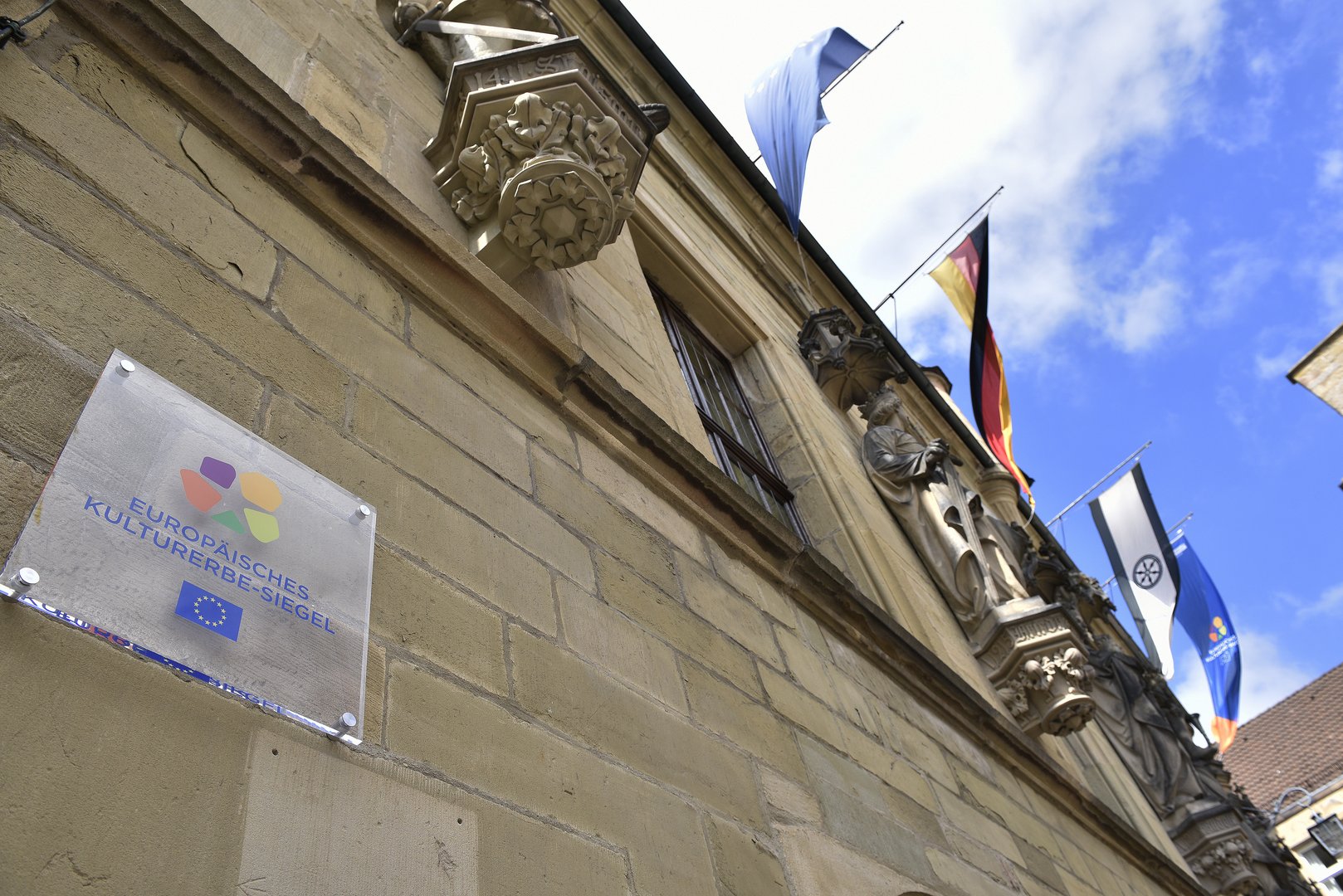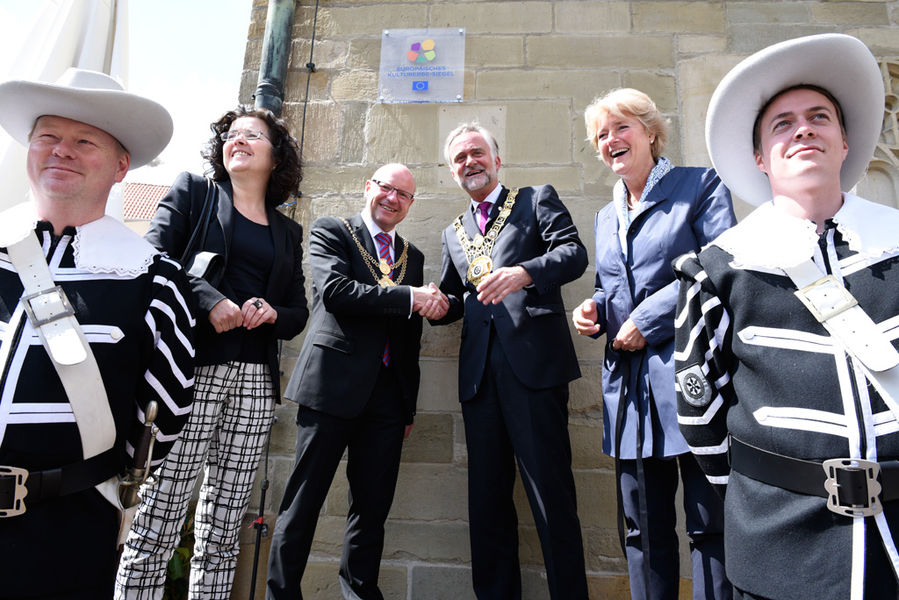Jubilee year 2023
Learn more about the 375th anniversary of the Peace of Westphalia.
The Peace Prize
Every two years, Osnabrück awards the Erich Maria Remarque Peace Prize.
Erich-Maria-Remarque-peace-prizeWhat do the town halls in Osnabrück and Münster have to do with the united Europe of the 21st century? A great deal! This is also the opinion of the European Commission, which awarded them the European Heritage Label as "Sites of the Peace of Westphalia" in 2015.
The sites awarded the seal have had a special influence on the history and development of Europe. In 1648, the Peace of Westphalia was concluded by negotiation in the town halls of Osnabrück and Münster. This peace ended the devastating Thirty Years' War and the age of confessional wars through diplomatic negotiations rather than military force.
It thus laid the first foundations for a European community of states and developed into a pillar of international relations that is still valid today. For peace laid the first foundations for a European community of states. The peace treaties, with their provisions of international law, developed into a pillar of international relations that are still of great importance today. In Osnabrück, a special achievement, unique in Germany, was also agreed: an alternating succession of Protestant and Catholic prince-bishops, which lasted until 1803 and regulated peaceful coexistence between the confessions.
In its decision, the European Commission attached particular importance to the fact that the European idea continues to play a special role today and that, in particular, young people's awareness of a European identity is strengthened. "In the 17th century, the highest representatives of Europe negotiated in our town hall. Today, it is the place of action of young city ambassadors from our European twin cities for one year at a time. With this concept of city ambassadors, which is unique in Germany, and many European schools, Osnabrück is a European municipality," explains Lord Mayor Wolfgang Griesert. "But cultural activities such as the European Media Art Festival or cross-border associations such as EUREGIO also promote the European idea and unification process."


In addition to the idea of religious tolerance, however, the idea of balance and negotiated compromise is also a decisive result of the Peace of Westphalia. Both achievements, which are so decisive for European history, are still a mission and obligation for the "Sites of the Peace of Westphalia", Osnabrück and Münster. The keywords and fields of action for this are dialogue and participation, a coexistence of cultures and religions. This culture is lived and further developed in numerous activities and event formats that have a supraregional and European impact.
Today, 29 award-winning cultural heritage sites from the Baltic to Portugal tell the story of Europe and contribute with their activities to shaping the European present and future.
Find out more about Europe's cultural heritage: information and links to all 29 heritage sites can be found here: